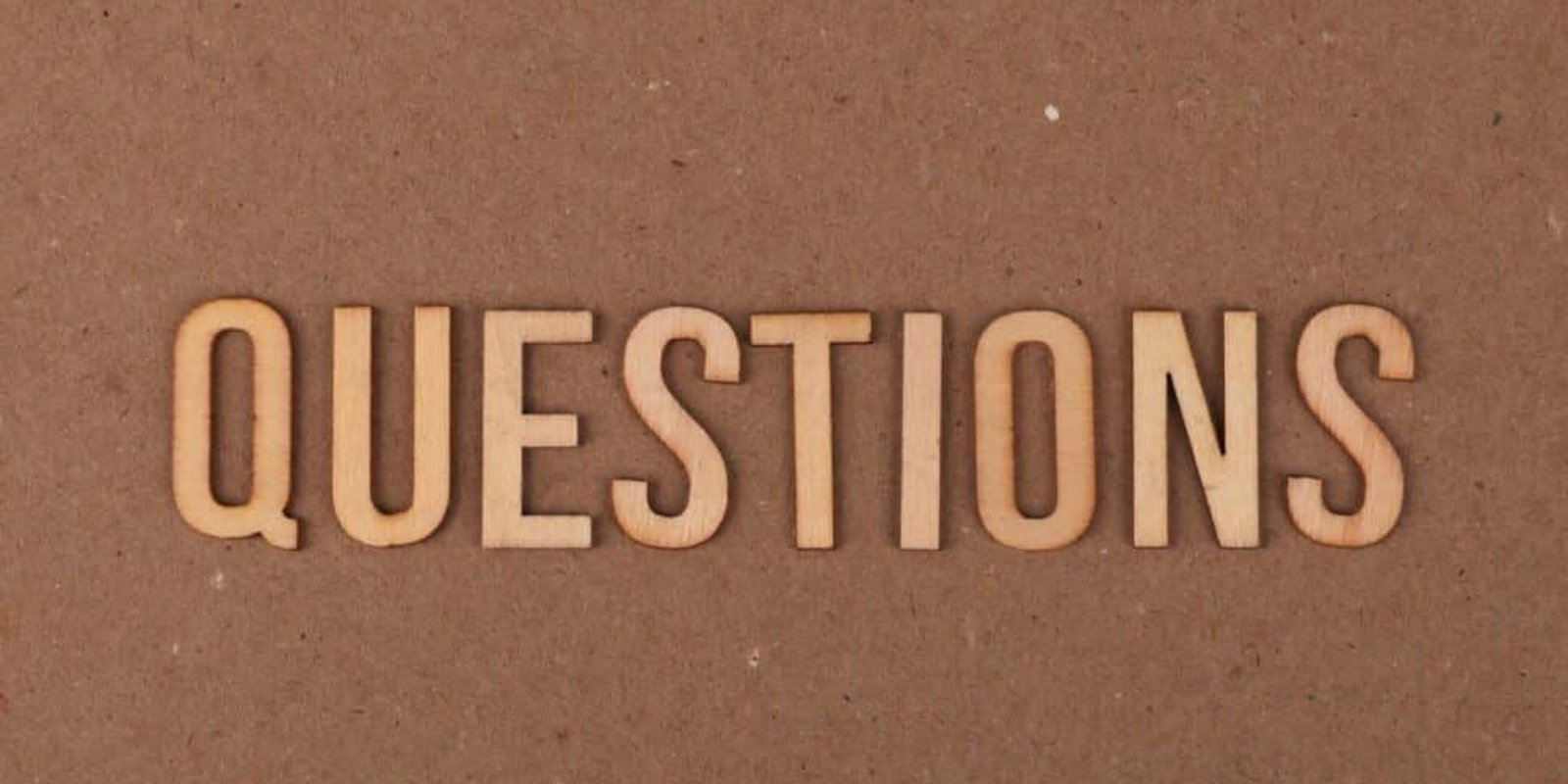Auto Accident FAQs
Accident Attorney Answers 50 Plus Questions for Victims of Auto Accidents
Here are 50+ questions and answers from an Accident Attorney to help you deal with the aftermath of an auto accident, including ones involving drunk driving.
TALKING TO THE AT FAULT DRIVER’S INSURANCE: When, Why — and When to Hang Up.
1. Should I talk to the at-fault driver’s insurance company?
Your first call will be to your insurance company, not to make a claim but to notify them of your auto accident. Your second call will be to the other driver’s insurance company. Be prepared and take notes. You will be making a claim against the at fault driver’s insurance for an auto accident that they caused and their insurance is there to protect them, not you.
You will provide your name, address, contact information, make and model of your car, where and when the accident occurred and your own insurance information. The adjuster will ask for your version of events of the auto accident.
A claims adjuster for the other party in this car accident may try to get you to do or say something that could hurt your claim. That is why it is best to say as little as possible.
If the other party’s claims adjuster calls you, all you need to share is your name and address. You can also tell them your lawyer’s name and contact information, if you’ve retained a lawyer.
You shouldn’t discuss the details of the car accident or your injury. Just tell the adjuster that you may (or will) be making a claim at the appropriate time.
If the claims adjuster asks to record the call, say no.
If the claims adjuster gets pushy, feel free to hang up.
In case, if you want to find out whether the other insurance company has accepted 100% liability for the accident, you can ask the claims processor for your own insurance company.
If the other insurance company hasn’t accepted liability, you can ask them why not via email or fax. Again, it’s best not to get involved in any kind of a phone call.
To learn more about this issue, click here.
2. Why is the other driver’s insurance company asking for my version of the auto accident?
They’re trying to get you to say something that would show you were partly or entirely responsible for the accident.
They probably won’t ask you to admit fault straight out. But they’ll probe for any inconsistencies between what you say happened, what their driver says happened, and what the police say happened.
If the case goes to a jury (which is unlikely but possible), the other side’s attorney can use these inconsistencies to cast doubt on whether the insurance company’s client was really 100% at fault for the car accident.
That’s why you shouldn’t talk to them about the car accident, and you certainly shouldn’t allow them to record a call with you.
To learn about comparative negligence, click here.
3. How Can I get the police report for my auto accident?
If your car accident was investigated by the police, you’ll need a copy of the police report to pursue your claim against the responsible party and his/her insurance company.
The Arizona Department of Public Safety (DPS) maintains records of accidents that occurred on state highways.
DPS officers have up to 14 days to complete and submit their reports to the Department Records Sections. Thus, people who were involved in accidents are asked to wait two weeks to check on whether a report is available. The number to call is 602-223-2230 or 2236.
DPS accident reports may be requested using this form, and the form should be sent to the address here. Copies of accident reports by mail must be accompanied by a self-addressed stamped envelope and the appropriate fee. The fee is $9 for the first nine pages and $1 for each additional page; thus, you’ll need to call first to find out how many pages are in your report. Photographic contact sheets are $10 and individual photos (either 8×10 or 4×6) are $4 each. CDs are $35 each, if available.
Note that no cash or personal checks are accepted by mail. Only business checks, cashier’s checks, or money orders may be sent. Checks and money orders should be made out to Arizona Department of Public Safety.
Police reports may also be requested in person at the DPS office at 2102 West Encanto Boulevard, Phoenix. The office is open from 8 to 5 Monday through Friday and closed on state holidays. Cash, business checks, and money orders (but not credit or debit cards) are accepted for in-person requests.
If an accident occurred on a city or county road, the law enforcement agency that investigated the accident will have the report.
4. How do I read a police report for my car accident?
Here are some things to look for when you’re reading a police report:
- Start by reading the narrative section of the report. This will tell the ‘story’ of the accident in chronological order, and will include statements made by witnesses. The narrative will give you an overview of the accident (as seen by the police) and help you understand other parts of the report.
- At the end of the narrative the officer’s name, badge number, and department should be listed, along with the date of the report. If you believe that the report contains errors, start by contacting the officer who wrote the report to request corrections.
- At the end of the report there may be an addendum, which is a continuation of the narrative. This is where the police add information discovered after the original narrative section was completed.
- The cover page of the report will include the names, addresses, phone numbers, and dates of birth of the parties involved in the accident. The cover page will also include the date, time, and location of the car accident. Insurance information should also be listed here.
- The section after the cover page will list details about the car accident like points of impact and tire impressions, and estimated speeds of the vehicle(s) involved.
Although you can get a police report yourself, your personal injury attorney can do this for you. Your attorney can also request corrections to any errors in the report.
5. Can I Get a Copy of the At Fault Driver’s Recorded Statement?
Yes you can and you can request it from your own insurance company.
6. What does it mean to have the at-fault driver’s insurance company accept liability?
They’re admitting their driver caused the accident and they now need to pay you for the property and bodily injury their insured caused.
7. Do I need their acceptance of liability in writing?
Absolutely. A verbal acknowledgement will not cut it.
You can ask for this in a short, simple fax or email. For example, you could write:
Does [name of insurance company] accept liability for the accident involving [name of insured driver] on August 12, 2019?
(You would fill in the information in brackets above when you send your email or fax.)
8. How do I communicate with the other driver’s insurance company without being recorded?
You should communicate in writing, by fax or email. However, don’t get involved in a discussion or share your own information via fax or email.
Or you can hire an attorney, like me, or use your own insurance company’s representative, if they are willing to help you.
9. When can I start talking to the other party’s insurance company?
Once they admit their driver is 100% at fault, you can start talking. Otherwise, all the conversations will lead to their attempts at having you accepting some portion of fault. You don’t want that to happen.
However, you still need to be careful not to say anything that would reduce the amount of your valid claim.
For example, when someone asks you “How are you today?” your instinct may be to say”fine” even if you don’t feel fine at all.
That’s one reason it can be helpful to have an attorney handle your claim – to prevent you from saying anything that could hurt your case.
10. Should I make a claim against my own insurance?
Yes you should — not because you’re at fault but because that’s what you purchased it for.
Because you aren’t at fault, your premiums won’t increase if you make a claim.
Your own insurance company will pay to repair your vehicle and will then submit the bill to the at fault driver’s insurance.
11. I was a passenger. Do I have a claim?
Passengers injured in an accident will usually have a claim against one or more of the involved drivers or other parties.
For example, A passenger may have claims against multiple parties, including:
- The driver of the car he or she was riding in
- The driver of the other car(s) involved in the accident
- The manufacturer of the car (or car component) that caused the accident or increased the extent of the passenger’s injuries (if the car or component was defective)
- The public or private entity that created a hazardous road condition
- In a drunk driving case, the bar or restaurant that served an inebriated driver
To learn more about passengers’ rights, click here.
12. What Information Should I Keep Track of?
You should keep track of things like:
- Your medical expenses
- Your medical records
- Dates of medical exams and treatments
- Time missed from work (including the dates)
- Repair costs for your car
- Rental car costs (if this isn’t covered by your own insurance)
- Costs to replace any personal items that were damaged in the accident (save your receipts)
- Any other cost or damage related to the accident
The Criminal Justice System – How to Navigate it.
13. Who was given a ticket at the car accident?
You can find out whether someone got a ticket by checking the police report on the car accident.
14. Will the other driver be prosecuted?
If the at-fault driver is accused of committing a crime – such as driving under the influence of drugs or alcohol – normally that person will be prosecuted.
In some cases, a driver who breaks the law will be offered a plea bargain – a reduced sentence in exchange for pleading guilty and avoiding a trial.
The other driver’s lawyer may also be able to get the case thrown out before trial, for a variety of reasons.
To learn more about DUI penalties in Arizona, please click here.
15. Will I need to testify at the other drivers trial?
If you were the victim of a DUI accident, you may be called to testify in the criminal trial of the person who hit you. You can learn how to prepare to testify, and what to expect here.
What Can Be Done About My Car After an Accident?
16.** **Where is my car after the auto accident?
If your car has been towed, you should have received the tow yard information from the police officer at the scene. Contact the tow company immediately and advise them of the at-fault driver’s insurance information.
Find out from the towing company what the fees owed are so far and what the daily cost is.
Until and unless the at-fault driver accepts 100% liability for the accident, towing and storage costs are your responsibility. Thus, you may want to consider having the car taken to a cheaper location. Note, however, that you will also need to pay for it to be taken somewhere else.
17.** **Where can I get my car repaired after the auto accident?
You can get your car repaired anywhere you want.
It’s a good idea to choose a reputable auto body shop that uses factory parts, not after-market parts.
If you need a list of good repair shops, contact us.
18. Who pays for my car repairs after an auto accident?
The at-fault driver’s insurance should pay for your repairs once they’ve assessed your vehicle.
They can either come to you or you can drive the vehicle to them (assuming you can drive it at all).
If you take your car to them, they’ll assess it sooner.
Also, consider making a claim against your own insurance if the at-fault driver’s carrier proves to be difficult or drags its feet. You cannot raise premiums if an accident wasn’t your fault.
19. My car was practically new. Now what?
You’re entitled to recover the difference between the value of your vehicle before the accident and the vehicle after it has been repaired as a result of the accident. This is called ?diminished value.?
You’ll need an appraiser to determine this amount. The cost of the appraisal is small in comparison to the value that you?ve lost.
Contact us to ask us who we use.
To learn more about your car’s value after an accident, please click here.
20. I lease my car. Now what?
Contact your leasing company. They’ll advise you how to proceed.
21. My car is un-drivable. How do I get around?
You’re entitled to the use of a rental car until you can repair or replace your own car.
The at-fault driver’s insurance may offer you a rental or your own insurance coverage can provide it. Sometimes it’s quicker and easier to use your own insurance rather than dealing with the at-fault driver’s coverage. Your own carrier will have the other carrier reimburse them for the charges.
22. Should I use my own car insurance?
It depends. If your injuries are significant, the at-fault driver has insufficient coverage, or you were hit by an uninsured or hit-and-run driver, you may be making a claim against your own policy.
Also, if the at-fault driver’s carrier tells you that they can’t determine who is at fault without the police report and you need transportation immediately, consider making a claim with your own insurance carrier.
If you make a claim with your own insurance company, you will have your deductible deducted from your repair costs. You’ll be reimbursed for your deductible once the at-fault driver’s policy repays your insurance company.
23. What if my car is totaled?
If repairs to your vehicle would cost more than 70% of the value of the car – e.g., the car is worth $10,000 and the repairs are $7,001.00 — expect the insurance company to offer you the fair market value of your vehicle, as it will be considered ‘totaled’ or a ‘total loss’.
Fair market value is the Private Party Kelley Blue Book (?KBB?) value of your vehicle. If your vehicle doesn’t appear in KBB, then an estimate of what your vehicle would sell for by a private party will be done. Newspaper ads, Craigslist, Auto Trader, etc. may be used for this.
24. I just added new tires, new rims, or other accessories. Can I recover that cost?
Possibly. You’ll have to provide proof of new additions to the car and ask for the value of this items.
Unfortunately, after-market parts on a vehicle do not necessary increase the overall value of the vehicle. Thus, an insurance company may initially will offer you zero.
If you can produce a receipt or invoice that’s less than a year old, you improve your odds of recovering something.
If you can get 50% of that costs, you’re doing well.
Injuries, Doctors, Medical Bills, Health Insurance and How to Feel Better.
25. How can I find a doctor?
We assist our clients if and when they need medical care. To learn more about finding a doctor, click here.
26. I don’t have health insurance. Now what?
We can assist you with finding a doctor or other health care provider who is willing to defer payment until after you receive compensation for your injury.
Discuss this with your doctor or their front office staff at the beginning of your treatment. If they agree, they’ll probably will advise you that the’ll be recording a medical lien in order to ensure their payment from the insurance company.
27. What is a Medical Lien and How to pay it?
A medical lien is a document, meaning it is a public document with the County Recorders Office indicating an outstanding medical bill that you must pay from your insurance settlement.
This doesn’t affect your credit score and it’s not reported to any credit bureaus.
A medical lien is reported to the insurance company for the at-fault party to ensure that the medical bill is paid from the settlement.
In order to be paid, a lien must be recorded timely and it must meet certain other legal criteria.
To learn more about medical liens, click here.
28. I’m in pain but I can’t take time off of work. What should I do?
By not taking time off work, even though you may lose pay or even your job, you can hurt your ability to recover an appropriate settlement for your injuries.
Documentation of your injuries is how an insurance company evaluates your claim and determines whether it will pay your claim.
This documentation can include:
- records of medical treatments
- medical bills
- Records of time lost from work due
Without medical bills or other specific losses, your claim for bodily injury is minimal.
More importantly, the longer you wait for treatment, the more difficult it is to determine whether the injuries you suffer from are a result of the auto accident or some other issue.
Bottom line, don’t wait to get treatment
29. I have health insurance. Should I use it?
Yes, you should use your own health insurance rather than pay out of pocket or wait for a settlement.
You should understand that payment from your own health insurance company are only a loan. This is because the insurer that originally paid the medical bills can file a medical lien against the proceeds of the settlement or damage award in the personal injury case. To learn more, click here.
You may also have medical payments insurance and not even know it. To learn more, click here.
30. I have other medical issues I’ve suffered from in the past, but now they feel worse. What should I do?
A vehicle accident can make an existing medical condition worse, and you can be compensated for this worsened condition.
You should seek treatment for a worsened condition, just as you should for a new injury.
31. Ambulance took me from the crash scene. Who pays the bill?
Ambulance and EMT costs will normally be paid by the at-fault driver’s insurance company. They may also be covered by your own health insurance or medical payments insurance, in which case your insurance company would seek reimbursement from the other driver’s insurance.
32. I spent time in the hospital. Who pays the bill?
Hospital costs will normally be paid by the at-fault driver’s insurance company. They may also be covered by your own health insurance or medical payments insurance, in which case your insurance company would seek reimbursement from the other driver’s insurance.
Going To Work after an Auto Accident. What to Do First
33. Do I tell my employer I was in an auto accident?
It’s probably a good idea to tell your employer that you were in an accident, if you suffered injuries. You may need to take time off from work for medical treatments or to have your car repaired, and your employer may be more receptive to this with plenty of advance notice.
You may also need to have your employer make accommodations to your working conditions because of your injuries. For example, you may not be able to lift heavy objects or stay on your feet as long.
34. Should I take my sick time or vacation time off for my auto accident?
You should start by using your sick time, and only use your vacation time if you don’t have enough sick time to cover the full period of your recovery. You should also talk to the human resources department at your employer about any other options you may have, such as temporary disability leave.
35. Can I get compensation for the time I took off of work for my auto accident?
Usually, compensation for time lost from work will be part of a settlement with the at-fault driver’s insurance company.
36. I am salaried, how do I document the time I took off of work for my auto accident?
Simply ask the human resources department at your employer to provide a letter stating the days you were off work due to your injuries.
37. I have to leave for doctor’s appointment for auto accident but my wages are not docked, can I still be compensated?
Yes, usually you will get compensation for time off work due to medical appointments, even if your wages are not dock.
38. I have not taken any time off of work but I’m not really working at 100% after my auto accident. Can I compensated?
This is a tough question. Unless you work in a job in which your compensation is based on your efforts and successes (such as commissioned sales), it may be hard to put a value on working at less than 100%.
Contact us to discuss your specific situation.
39. A drunk driver hit me in an auto accident, how does that affect my case?
Personal injury claims involving a drunk or drugged driver have some special features.
When a driver is convicted for driving under the influence (DUI) in criminal court, this can greatly strengthen a civil claim for personal injuries caused by that driver. This is because the standard of proof is higher in criminal court than in civil court.
To learn about penalties for DUI, click here.
If you testify as a witness or victim in a DUI case, click here to learn how to prepare and what to expect.
However, since many insurance policies don’t cover injuries due to DUI (or other criminal acts), a criminal conviction can make it harder for a victim to collect compensation for his or her injuries.
In addition to the compensatory damages available in any personal injury case (to compensate the victim for medical costs, lost income, pain and suffering, etc.), victims of drunk drivers can also entitle to other forms of recovery.
40. Someone hit me who appears impaired, how can I find out if they were?
This information should be in the police report on your accident.
41. The drunk driver who hit me was only borrowing the car he was driving. Is he responsible for my injuries?
Yes, the drunk driver is still responsible. Other parties may be responsible as well. These other parties could include the person who entrusted the car to the driver and any establishment that served liquor to the driver, if he or she was obviously intoxicated at the time.
42. The drunk driver who hit me had numerous prior driving violations, what does this mean to my auto accident case?
If your case goes all the way to a jury (which is unlikely), the jurors may be more liable to award punitive damages if a repeat offender is responsible for the injury.
To learn more about punitive damages, click here.
43. Where can I get help for the depression/anxiety that I am feeling from the car accident?
Mental and emotional injuries are as real as physical injuries. To find a doctor or therapist who can help you, ask your primary care doctor for a referral or contact us.
44. How can I find out how much insurance the at-fault driver has?
You can send an email or text to the at-fault driver’s insurance company and ask.
As discussed above, avoid talking to the insurance company on the phone.
45. How can I find out how much my auto accident case is worth?
No lawyer can tell you exactly how much your personal injury case is ?worth.? There is no precise formula.
However, an experienced personal injury attorney can give you an estimate of the range of compensation you can expect.
Most personal injury cases settle out of court, and most defendants have insurance. Thus, most compensation is paid to personal injury victims on the basis of a settlement negotiated with an insurance company.
In a settlement negotiation, the parties balance risk and reward. One risk is that the parties won’t settle and the case will go to trial. Going to trial means that it could take months or even years for the victim to receive compensation, and the victim will have to deal with depositions (answering questions from the defendant’s attorney), medical examinations, and testifying at trial.
If a case does go to trial, a risk for the victim is that the jury will award an amount lower than the defendant (or the insurance company) would have agreed to. A jury might even find that the victim was entirely responsible for his or her own injuries, and thus award zero damages.
To learn more about determining the value of your case, click here.
46. An uninsured driver hit me in an auto accident. What can I do?
You should contact your own insurance company. You may have uninsured motorist coverage.
To learn more, click here.
If not, you may need to sue the other driver to seek compensation. However, your chances for recovery may be poor. Most people who drive uninsured don’t have much in the way of income or assets you could take to pay for a judgment in your favor.
47. An under-insured driver hit me in an auto accident. What can I do?
You should contact your own insurance company. You may have insurance that protects you if a driver hits you who is un-insured or under-insured.
To learn more about under-insurance coverage, click here.
48. I was a victim of a hit-and-run auto accident. What can i do?
You should contact your own insurance company. You may have medical payments insurance or other coverage that can help you.
49. My family has gone through a lot after the auto accident. Is it possible to compensate it?
Under some circumstances (including your death), your family members can get benefits for injuries they suffer indirectly as a result of your own injuries.
This type of compensation is sometimes referred to as being for ‘loss of consortium’.
Family members may also be able to recover for anguish, sorrow, and mental suffering.
To learn more, please contact us.
50. My mother/brother/sister/relative moved in to take care of me after the auto accident. Is it possible to compensate it?
The short answer is Yes.
51. My children were involved in an auto accident. How to handle a minor’s auto accident claim?
A claim for an injury to a child is very much the same as a claim for an injury to an adult.
For information about injuries to unborn children, and having a car accident when you’re pregnant, click here.
For information about reducing the risks for children in car accidents, click here.











